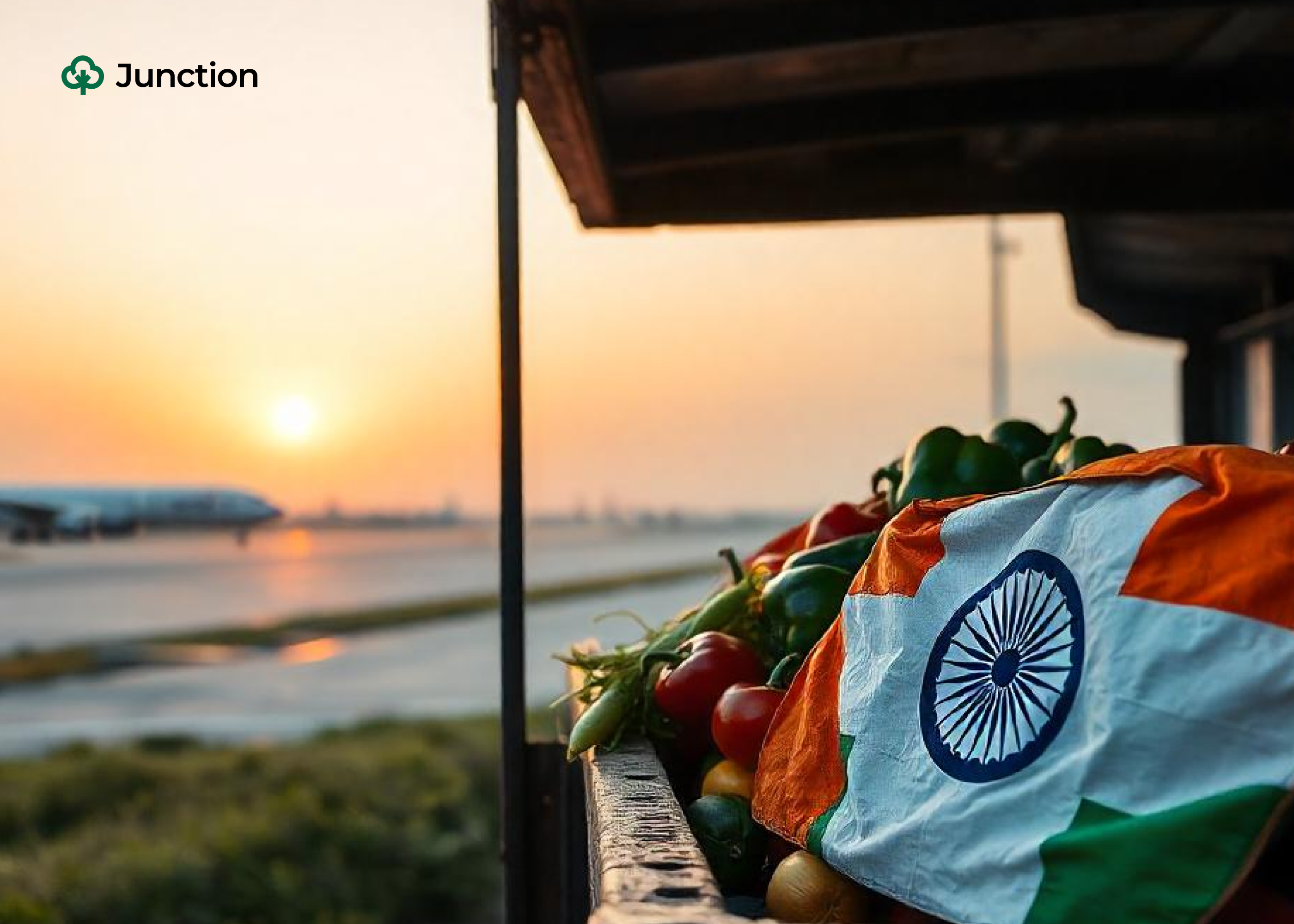News in brief:
– India’s agricultural exports have grown by 47.3% in volume and 41.5% in value since FY20, reaching 123 countries with government support for infrastructure, quality improvements, and market promotion.
– New national cooperative societies are boosting agricultural exports, organic product marketing, and quality seed production to strengthen India’s rural economy.
India’s fruit and vegetable exports have witnessed a significant surge, thanks to the support provided by the Agricultural and Processed Food Products Export Development Authority (APEDA). Over the last five years, beginning FY20, exports have grown by 47.3% in volume and 41.5% in value, a report said. India has also expanded its global footprint, reaching 123 countries and entering 17 new markets, including Brazil, Georgia, Papua New Guinea, and Ghana.
The remarkable growth has been achieved through strategic initiatives such as participation in international trade fairs, market access negotiations, and buyer-seller meetings. APEDA, under the Department of Commerce, has played a crucial role by providing financial assistance for infrastructure development, quality improvements, and market development. This includes support for packaging houses, pre-cooling units, cold storage, refrigerated transport, and essential pre-shipment treatments.
Additionally, the agency assists exporters with quality management systems, laboratory testing equipment, and farm-level traceability tools. Market promotion efforts include participation in international trade fairs, developing packaging standards, and organising business meetings. The data on exports is compiled by central agencies based on exporters’ shipping bill information.
Several Indian states, including Uttar Pradesh, Maharashtra, Gujarat, and Tamil Nadu, are key contributors to the country’s export growth. In recent years, India has secured market access for various agricultural products, such as potatoes and onions in Serbia, baby corn and bananas in Canada, and pomegranate arils in Australia, the United States, and New Zealand. APEDA is actively addressing trade barriers by negotiating market access and enhancing logistics efficiency.
Strengthening India’s cooperative sector
In another significant development, the Ministry of Cooperation has established three national-level cooperative societies: National Cooperative Exports Limited (NCEL), National Cooperative Organics Limited (NCOL), and Bharatiya Beej Sahkari Samiti Limited (BBSSL). These initiatives aim to enhance agricultural exports, promote organic products, and improve seed quality.
NCEL has facilitated the export of over 10 million metric tons of agricultural commodities, earning Rs. 4,121 crores in revenue. NCOL has launched the ‘Bharat Organics’ brand, procuring premium organic products and collaborating with multiple states. BBSSL focuses on increasing quality seed production, reducing dependency on imports, and supporting India’s rural economy.
With strong government backing and structured policies, India’s agricultural sector is set for continued global expansion and sustainability.
India’s ambitious 2025 budget for agriculture, development, and exports
Finance Minister Nirmala Sitharaman presented the Union Budget 2025-26, focusing on economic growth, rural development, and export expansion. The budget includes increased agricultural credit, infrastructure development, and financial incentives for farmers and businesses.
The Prime Minister Dhan-Dhaanya Krishi Yojana will cover 100 districts, enhancing irrigation, storage, and productivity. The Mission for Aatmanirbharta in Pulses, a six-year plan, aims for self-sufficiency in key pulses. Additionally, a five-year Mission for Cotton Productivity will leverage science and technology to improve yields. The Kisan Credit Card (KCC) loan limit has been raised from Rs. 3 lakh ($3,450) to Rs. 5 lakh ($5,710) to support farmers, fishermen, and dairy producers. A new Urea Plant in Assam will boost domestic fertiliser production.
The Export Promotion Mission will facilitate trade growth, while BharatTradeNet will provide digital infrastructure for export documentation. Air cargo warehousing will support high-value agricultural exports.
With major investments in infrastructure and financial relief for businesses and individuals, the 2025 budget aims to strengthen India’s economic resilience and global trade presence.



